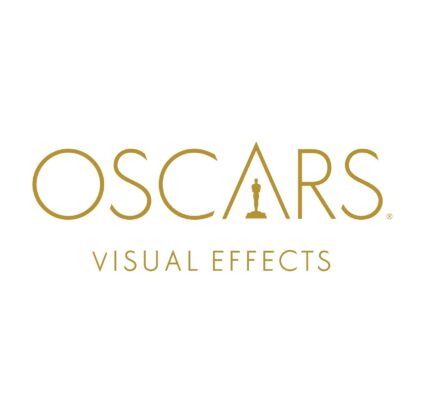Interview with Scott Ross: The Dark Side of VFX
While astonishing VFX work might be the backbone of every summer blockbuster, the industry itself is in a state of turmoil. As the work of VFX artists goes unacknowledged, and effects houses succumb to bankruptcy, former Digital Domain founder Scott Ross explains why he’s desperately trying to save the VFX industry from itself.
Ross is an outspoken advocate for the visual effects industry. In the 1980s he was general manager of Lucasfilm’s Industrial Light and Magic (ILM). In 1993 he founded Digital Domain, Inc., with James Cameron and Stan Winston, one of the largest digital production studios in the motion picture and advertising industries. In 2006, Ross sold Digital Domain to director Michael Bay, and a group of private equity investors led by John Textor.
Now, Ross is on a mission to establish an international trade organisation for the visual effects industry, to protect it from similar situations that befell Rhythm and Hues, which was filing for bankruptcy while collecting an Oscar for its work on Life of Pi. With three decades of experience, Ross is perfectly placed to comment on the industry’s current state of being.
Why do you think the VFX industry is in a crisis state?
The industry has not been a healthy one for as long as I can remember. Over the last quarter of a century that I’ve been involved, it’s not been healthy, and from what I can tell it hadn’t been healthy for years prior to that. It’s never been a healthy industry; it’s just gotten worse.
There is the perception that it is buoyant; is that because of the sheer quantity and quality of FX work seen in big-budget movies?
It was a cottage industry for a long period of time, and now it’s a much larger international industry. With there being more work and it being global, the disparity between the haves and the have-nots has become so great that it’s got a lot of press lately, and the chasm has opened even wider.
Are the VFX houses partly to blame for their own demise?
The demise of the industry has everything to do with the visual effects industry itself. The main culprit for its failure is the VFX industry, both on the artists’ side and on the management side.
Basically it has been, and in some ways continues to be, a fanboy industry on the artists’ side. There are all of these schools churning out graduates, who have little-to-no experience but who are prepared to take the work at very low wages, and at times for free, which has been going on for years and years. It really harms the industry because it doesn’t appreciate what the artists bring to the work itself. The management, most of whom have come out of the fanboy mentality, are prepared to do the work at no cost—or even at a loss at times—so they can continue to keep ‘busy’, but that work that doesn’t pay their bills.
It’s shocking to me that your government is funding major, multi-billion-dollar American global corporations and allowing them incredible tax subsidies to come and work within the UK.
With technology becoming more powerful and less expensive, are the studios expecting to get the work faster and cheaper?
The studios are very good business people, and as business people with no value judgements, they are just trying to get the best possible price for the best possible product, in the shortest creative time. It’s really up to the vendor, the visual effects companies, to say we can’t do that. The visual effects industry has been unwilling to say no to the client.
Should the industry get itself better organised?
The visual effects industry needs a trade organisation; someone to speak out on behalf of the industry. Seemingly, that’s not going to happen, which is unfortunate. As I look at the possible solutions that are out there, an international trade association is probably the most viable alternative before any solution is possible.
Is this to ensure that the Asian market doesn’t always undercut US and European facilities?
This is not about price fixing. That’s illegal. The trade association is about different things that have nothing to do with price fixing. If there’s a company located in Bangladesh and can do the work that a company in the UK could do, for example, at 10 cents on the pound, then that company in Bangladesh should get the work. We’re not trying to legislate for price fixing or that work should only go to English-speaking countries; that’s not what the trade association is about.
The real mission of the industry association would be number one, change the business model, which is right now a fixed-bid model, which has been the industry standard for as long as I can remember. It doesn’t work. I would hope that the industry as a whole would say that that model does not work and we reconsider the way in which we are selling our services. For example, the commercials industry has what is called the costs-plus-fixed-fee model. There are lots of different business models that could be considered, but the model of a fixed price is not working. It’s time for the industry to collectively look at what the appropriate business model is to charge our clients from a business model point of view, not ever addressing pricing—which, again, is illegal in the United States.
Can you see the industry getting out of this slump?
The visual effects industry put itself in the slump. There’s more of a need for visual effects today than any time period of filmmaking. Now what has to happen is we have to start running our businesses like businesses and try to get a return on equity and investment, and bring profitability to the organisation.
Many see tax breaks and incentives as positive for the industry; why do you believe they are fatal for the VFX industry?
The offering of tax incentives is one of the main causes of turmoil, and could be the ultimate ruination of the industry. It’s like trying to treat heroin addiction with methadone. It’s shocking to me that your government is funding major, multi-billion-dollar American global corporations and allowing them incredible tax subsidies to come and work within the UK. As soon as the subsidies end, Sir William Sargent [CEO/founder of Framestore] said he would lose 70 per cent of the business. I don’t understand how that’s fair. I can understand, in the short run, if a government says, we think there is a great opportunity for this clean business, we want to feed it, so we’re going to give tax subsidies for two or three years to build an industry, and then see if they stand on their own. The visual effects industry in the UK and London has been sucking off the teat of your government for 15 years.
If London’s work is as good as everyone believes it is—and I frankly believe it is because London has built an incredible visual effects group of artists—then let those artists compete on the worldwide stage like everyone else. Let’s take the tax subsidies away and have them go towards school teachers and firemen. I’m not sure why the citizenry of the UK continues to give billions of dollars to US film companies. If you’re looking to build a film industry in the UK, why not give that money to London and British filmmakers to make British films?
Is there a way of getting the studios to better support the VFX industry, because they are the ones that rely on it the most?
There needs to be some education and some reaching across the aisle between the visual effects industry and the major motion picture studios and collectively coming up with some solutions that benefit everyone. I personally believe that visual effects would be less expensive if visual effects and production were hand-in-hand right from the get-go. Right now we’re a very expensive afterthought where we have to fix things, and we can’t really tell the director what to do because he’s a billion-dollar director, and we can’t tell the studio what to do because they’re the client.
Visual effects is the most important part of filmmaking in blockbuster movies. It’s the most technical and can add up to be the most expensive, and it can get away from you. There’s a lot of education that needs to be done on the working model, and I think a trade association would be best suited to do that.
I have not been successful in organising a trade association, and I’ve been trying for 25 years. I will continue to try because I still believe it is the only remedy to an incredibly ill industry. I’ve tried desperately to have the UK facilities [come on board]; after multiple attempts to try and contact Framestore and DNeg, and people like that, British effects houses are seemingly not interested in joining an international trade association. I don’t understand why, but they’re not interested. I will continue to knock on the doors of Sir William Sargent and the like and hopefully at some point they will understand that this is for their benefit. It’s the old adage: you can lead a horse to water but you can’t make it drink.












